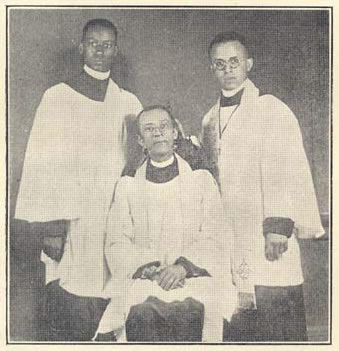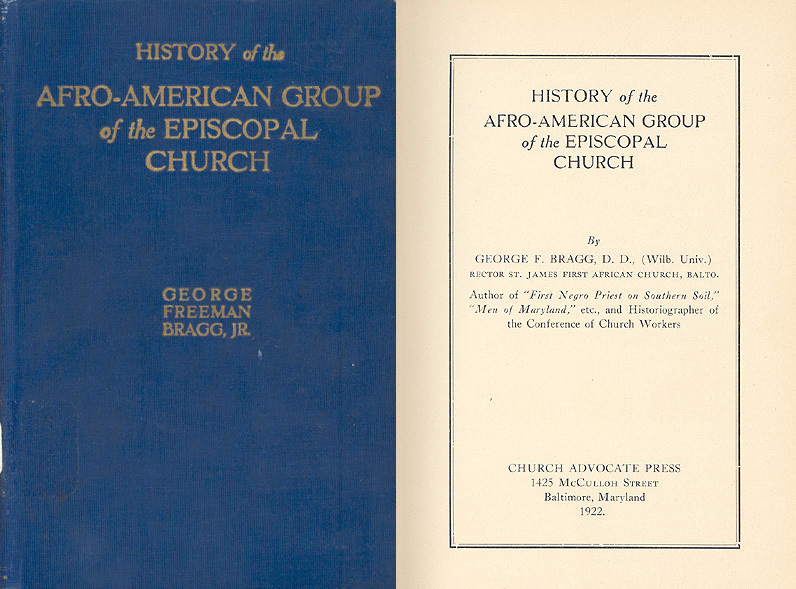Leadership Gallery
The Reverend George F. Bragg, D. D., 1863-1940
Such was inevitable under a system which failed to take note of the imperative requirements of the new trend of racial life. The colored people eagerly availed themselves of whatever educational opportunities that were presented. But with respect to their organized life as a body of Christians no organization could prevail among them which did not enter into their entire life, social, civil and intellectual. They wanted to rise. They had ambition to be everything that other people were. They may have been wrong, but from their point of view none but their own leaders could guide them to the haven where they would be.
- The Reverend George F. Bragg
George Freeman Bragg’s reflections touched on a system that treated African Americans as the wards of mission rather than members of self-realized and independent communities. Education was offered by the Episcopal Church, but it did not engage in raising up the institutions of self support and leadership, lay and clerical, that would have created roots in the local communities and lasting bonds of affinity among African Americans.
The early history of African Americans and the Episcopal Church would be nearly impossible to recover without the historiographical work of George Freeman Bragg. He served as the secretary and historiographer of the Conference of Church Workers Among the Colored People for 35 years beginning in 1882. As a historian, Bragg authored First Negro Priest on Southern Soil, Men of Maryland, History of the Afro-American Group of the Episcopal Church, and Richard Allen and Absalom Jones. At the time, these works served as a primary source of information on African-American Church.
Bragg was an educational leader both within and beyond the Church. He was born into an Episcopalian family on January 25, 1863 in Warrenton, North Carolina. In 1879 he campaigned for the Readjuster Party in Virginia, which endorsed Black voting and state-supported higher education for the Black community. Bragg was appointed a page and postmaster in the Virginia House of Delegates in 1881 and began the publication of a secular weekly for African Americans entitled The Lancet the following year. He re-entered the theological department of the Bishop Payne Divinity School in 1885 and retitled his newspaper the Afro-American Churchman that same year.
History of the Afro-American Group of the Episcopal Church , George Bragg, 1922, Church Advocate Press, Baltimore, MD. View the full text of this volume at the University of North Carolina's "Documenting the American South" project.
The grandson of an enslaved person who helped to found St. Stephen’s Episcopal Church for Negroes in Petersburg, Bragg was ordained a deacon in 1887 in Norfolk, Virginia. He successfully challenged the diocese’s practice of keeping Black men in deacon’s orders for five or more years, and entered the priesthood in 1888. Bragg served as rector of St. James First African Church, Baltimore, Maryland from 1891 until his death in 1940. He also knew how to connect with the social needs of his people by establishing the Maryland Home for Friendless Colored Children in 1899. During his appointment he worked to advance the education of African Americans within society and the Church, fostering some twenty vocations including that of the Rev. Tollie Caution. Bragg agitated against the exclusion of African Americans from participation in the Episcopal Church’s central missionary society and field work. Evangelizing African Americans was not a priority of the white church, which left Black congregations to survive on their own devices and paltry resources to build up their numbers in a Church that would not engage its Black heritage.
The personal papers of George F. Bragg are deposited at the Moorland-Spingarn Research Center at Howard University. [Sources]



